7 Reasons You Should Never Skip Your Dog’s Annual Vet Visit
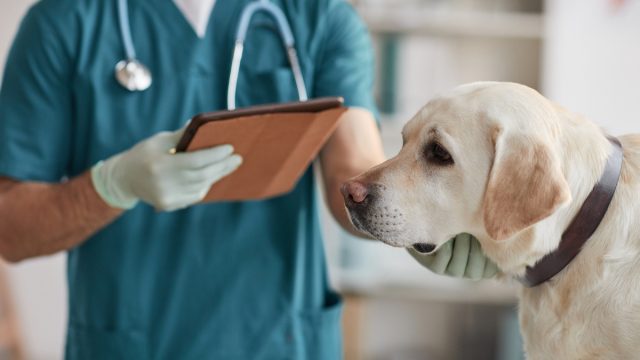
Your dog depends on you for a lot of things: food, water, walks, and affection, to name a few. But perhaps most importantly, they rely on you for healthcare—and that includes regular vet visits. “One year in a dog’s life can be equivalent to five to seven years of a human’s life,” says Heather Berst, DVM, veterinarian and medical lead with Zoetis. “So, a lot can change in that year.” But if your dog seems otherwise healthy, it can be easy to think that a checkup isn’t necessary. According to veterinarians, though, you should never skip your dog’s annual appointment. Read on to learn the most important reasons why this once-a-year vet visit is so important. Don’t have one in the books? Schedule it ASAP to ensure your pup lives its happiest, healthiest, and longest life.
READ THIS NEXT: The 7 Best Dogs for Beginners, Vets Say.
1
Your dog needs to stay up-to-date on vaccines.
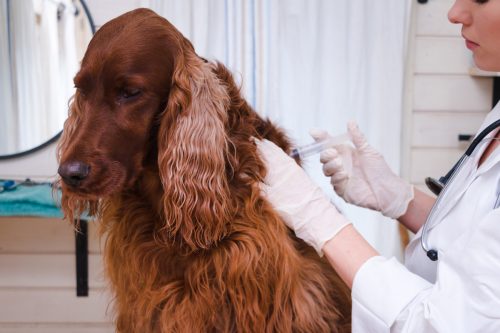
Vaccines are equally as important for dogs as they are for humans. “Dogs need to attend their annual vet visit because annual vaccines protect against harmful and potentially fatal diseases, which all dogs are at risk for,” says Berst. “Some diseases, such as leptospirosis and rabies, can even be transmitted to people.” And with many folks traveling and socializing with their dogs more than ever, Berst notes it’s especially important to vaccinate your dog against diseases like bordetella, or kennel cough, and canine influenza. “Your veterinarian will be able to talk to you about which vaccines make the most sense to protect your dog and keep them healthy,” Berst adds.
2
Your dog needs a stool screening.
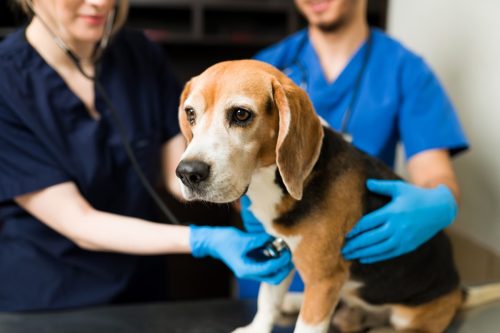
While veterinarians vary in how often they recommend specific screenings, a stool screening is common at many annual appointments. “It looks for any parasites, abnormal bacteria, or cells, including blood cells, in the fecal sample,” says Sarah Wooten, DVM, veterinary expert at Pumpkin Pet Insurance. “This is important because dogs can often carry occult, meaning hidden, infestations with intestinal parasites, including hookworms, roundworms, coccidia, and giardia.” Because some of those parasites are infectious to people, you’ll want to ensure your dog is worm-free on a regular basis. “In addition, if there are any problems with the intestines, then a fecal screening can pick up problems early before they become bigger problems,” says Wooten.
READ THIS NEXT: If Your Dog Is Playing With This, Take it Away Immediately.
3
Your dog needs its heart checked.
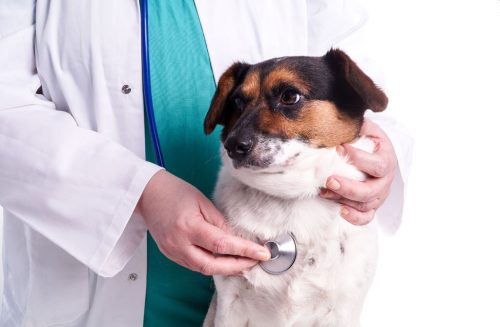
An annual listen with the trusty stethoscope can help your pup stay in top health. “Your veterinarian will listen to your dog’s heart and can hear things like heart murmurs or irregular heartbeats,” says Berst. “These can be fairly common as dogs age, and getting them on medication can help keep them healthy longer.” See, it’s all about preventative care.
4
Your dog needs a urine check.
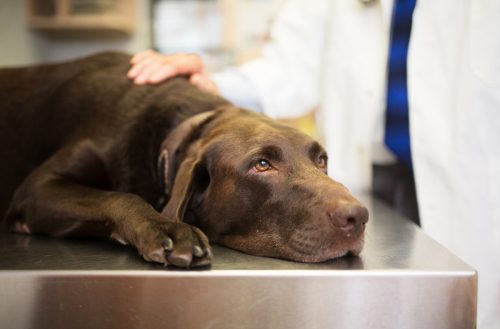
This is a test that may not occur at every annual wellness screening but should happen regularly. For older dogs, it’s suggested each year. “This test will screen for infection and the possibility of bladder stones,” says Jamie Whittenburg, DVM, lead veterinarian at Senior Tail Waggers. “It also will test for glucose in the urine, which can signal that the dog has diabetes mellitus, and the urinalysis will give an indication of the dog’s kidney function.”
For more pet advice delivered straight to your inbox, sign up for our daily newsletter.
5
Your dog needs a blood test.

Many vets will do blood work annually on dogs over the age of six. “These tests will screen the red and white blood cells, looking for anemia, infections, blood cancers, and other illnesses,” says Whittenburg. “Additionally, organ function tests will evaluate the functioning of the dog’s thyroid, liver, kidneys, and pancreas, as well as blood sugar, proteins, cholesterol, and electrolytes.”
6
Your dog can be assessed for discomfort.
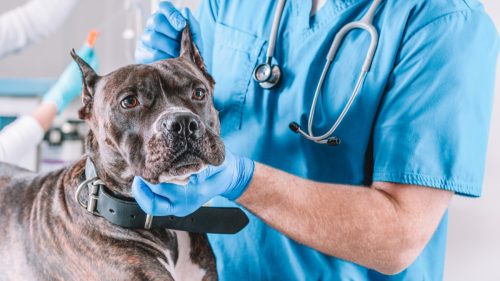
In particular, for osteoarthritis, the early signs of which “can be subtle but can still cause your dog pain,” says Berst. “Your veterinarian can examine your dog for signs of it and talk to you about what to look for at home.” There are medications and other methods of managing this pain for dogs, so you’ll want to ensure you’re aware of the issue. That way, you can make your pup as comfortable as possible.
7
Your dog needs its teeth assessed.
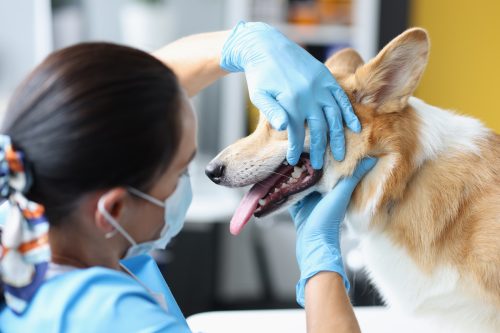
Since there’s no such thing as a doggie dentist, this task falls under your veterinarian’s domain. “Dogs can live longer and feel better with good dental health,” says Berst. “At the exam, your veterinarian will check for gingivitis, plaque, and tarter.” They may recommend a dental cleaning if they believe it will benefit your pup.